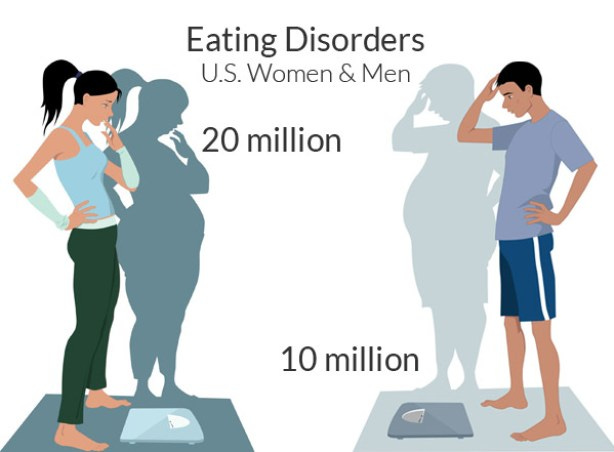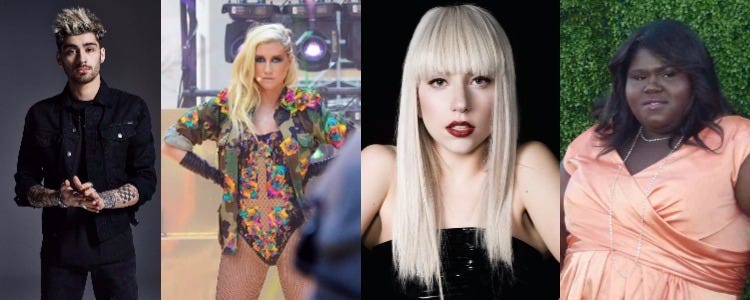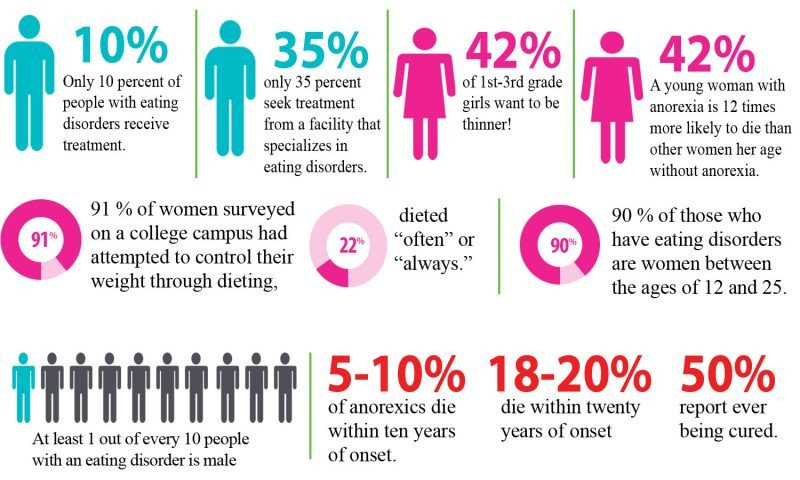Eating disorders and the holiday season; there is help out there
Click to read the full story: Eating disorders and the holiday season; there is help out there
Ah, the holidays. They are upon us, and that means toys, parties, ugly sweaters, and shopping trips to the mall. There is so much to love about this time of year because for most people; it is indeed the most wonderful time of all.
But while the majority of the population is celebrating the entire month of December with friends and family, the holidays are not always fun and games for those battling mental health disorders. Christmas can be a time of sadness and loneliness for them. It can also be triggering. This is especially true for individuals struggling with eating disorders. In fact, the number one killer of people with a mental health disorder is eating disorders. And with all the food, cakes, cookies, and candy the season brings, it can be a tough few weeks.
While most people are familiar with the term mental illness, modernly referred to as mental health disorders, there are still many misconceptions about what causes one to suffer from a mental health issue. The common culprits – depression, bipolar disorder, schizophrenia, and anxiety – are all devastating sicknesses that debilitate, discourage, and far too often rob individuals of their very lives. But as much as we think we know about the various mental health disorders that affect 1 in 5 Americans, there is so much more to truly understanding for the purpose of helping the nearly 1 in 25 individuals living with a serious mental health disorder on a regular basis.
When speaking about eating disorders, people usually brush them off as something that can be controlled and thus the condition is not taken seriously because everyone eats. People exercise and diet and discuss all of these openly. So when someone is struggling with an eating disorder, others don’t see it as a true illness. The truth is anorexia nervosa, bulimia nervosa, and binge-eating disorder are not lifestyle choices. They are serious conditions that can lead to fatal outcomes. These illnesses, along with many others, begin with a thought an individual has about themselves, usually negative and self-deprecating in nature, that causes them to make drastic changes to their eating habits.
These kinds of disorders can also be the result of an emotional or chemical imbalance. And when it comes to the “common culprit” known as anxiety, according to Tricia Baker, co-founder of Attitudes in Reverse (AIR), an organization that seeks to provide unlimited mental health awareness and suicide prevention programs to youth and young adults regardless of their ability to pay, approximately 1 in 5 of all people who have a mental health disorder have an anxiety disorder.
It is the most common and the most prevalent. If you delve further into how eating disorders affect people of all ages, in American alone, at least 30 million people suffer from some kind of eating disorder and a person dies as a direct result from an eating disorder every 62 minutes. These numbers are astounding and support the fact that more attention, empathy, and assistance must be given to those suffering from such often time ignored mental conditions.

There are many myths about eating disorders floating around the blogosphere, and one of the biggest misjudgments about the sickness is that women are the primary sufferers. There is no doubt that women have a lot of pressure on them to fit into a perceived mold of beauty, especially those who work in entertainment in front of and behind the scenes. But there is a significant amount of men who also struggle with eating disorders as well. As the story goes, because men don’t like to talk about these kinds of things, they usually go without getting the help they need, which has disastrous consequences.
That’s why celebrities like Peter Kraus of The Bachelorette speaking up about his experience with eating disorders is so important. It brings the realities of the situation into perspective for those on the outside looking in. Krause, 31, got pretty candid about his battle to compete during his modeling years and how hitting “rock bottom” was a turning point for him. He posted to Instagram,

“At the age of 20, I had developed an eating disorder while blindly attempting to keep up with the level of fitness of my fellow models and competitors. For two years I struggled in silence, always trying but never knowing how to compete with my counterparts.”
This is just one of many stories about the effects of eating disorders on men and women alike. The condition has long been a concern amongst celebrities who seemingly will do anything to remain relevant and in demand.

From 70’s hit-maker Karen Carpenter, who famously struggled and unfortunately lost her battle with anorexia nervosa at the age of 32, to Demi Lovato who sought treatment in 2010 for bulimia, Russell Brand, Gabourey Sidibe, Zayn Malik and more have come face to face with the condition at some point because of a need to maintain or reach an aesthetic standard. Mental health disorders are no respecter of persons and don’t pick and choose who to affect based on the amount of money or fame one has.
Mental health is a pressing issue in today’s society, and thankfully there are organizations that support, advocate, and help those suffering from mental health disorders. Entities like the National Eating Disorder Association (NEDA), Attitudes in Reverse and the Trevor Project are just a couple of resources that work tirelessly on behalf of sufferers. And with celebrities like Supernatural’s Jared Padalecki using his own mental health struggles to start a t-shirt campaign (Always Keep Fighting) that has raised both awareness and funds to fight against depression, now more than ever is the time to become involved and cognizant of the real impact mental health disorders have on individuals as young as 8-years-old in some cases.
It is time that we change the conversation about eating disorders. Take out the judgment and add in compassion. Remove the assumptions and get to the facts. People are too precious to suffer alone. The power lies within all of us to change the way mental health disorders are handled. This holiday season and throughout the year, open your hearts and minds and know that those suffering from such conditions are not burdens but individuals who need and want help.
The post Eating disorders and the holiday season; there is help out there appeared first on Movie TV Tech Geeks News By: The Curvy Girl Diva

